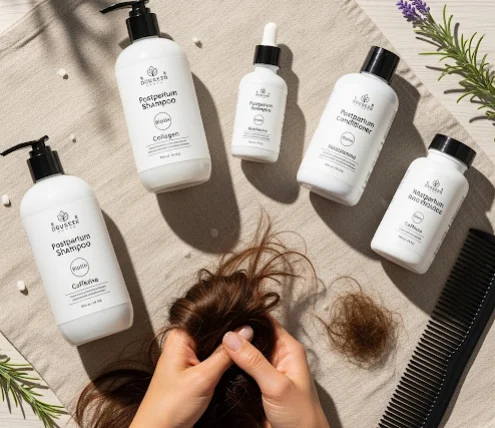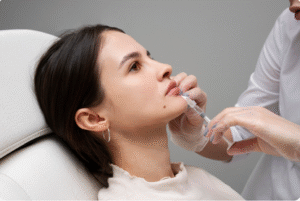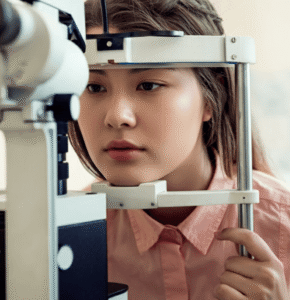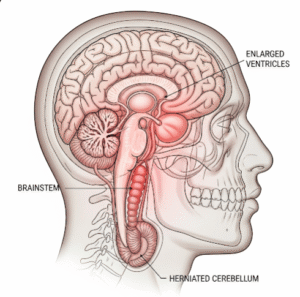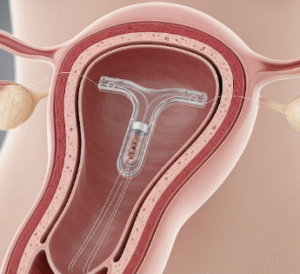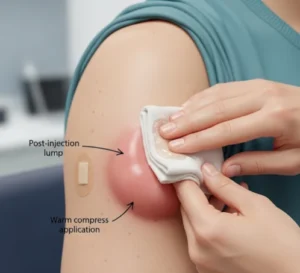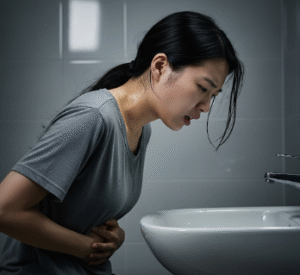🟢 What it is
Postpartum hair loss (telogen effluvium) is a common condition that occurs in women after childbirth, usually peaking around 3–6 months postpartum. During pregnancy, high estrogen levels keep hair in the growth phase, making hair appear thicker. After delivery, hormone levels rapidly drop, causing many hairs to enter the shedding (telogen) phase at the same time.
In Korea, postpartum hair loss is treated as a temporary but manageable condition. While most women recover naturally within 6–12 months, Korean clinics offer specialized care programs to accelerate regrowth, strengthen hair, and restore scalp health—especially for mothers experiencing excessive or prolonged shedding.
🟢 Why it’s Treated in Korea
Women in Korea seek postpartum hair loss care to:
➡️ Reduce excessive shedding and protect self-confidence.
➡️ Support faster regrowth and shorten the recovery phase.
➡️ Strengthen follicles to prevent long-term thinning.
➡️ Maintain scalp health (hydration, circulation, balance).
➡️ Prevent chronic hair loss in women predisposed to female pattern hair loss (FPHL).
🟢 Alternatives and Treatments in Korea
🔹 Medical Options (used cautiously in postpartum women)
- Topical Minoxidil (2% or 5%) – Sometimes used after breastfeeding, not always first-line during nursing.
- Oral medications (finasteride, dutasteride, spironolactone): Generally not recommended during pregnancy or breastfeeding.
🔹 Regenerative Therapies
- Scalp Mesotherapy: Vitamins, amino acids, peptides, hyaluronic acid for follicle nutrition.
- PRP (Platelet-Rich Plasma): Uses the mother’s plasma growth factors to stimulate follicles naturally.
- Exosome Scalp Therapy: Cellular messengers that enhance follicle recovery.
- Polynucleotide (PN) Boosters: Salmon DNA for scalp repair and improved blood flow.
- Dr. CYJ Hair Filler: HA + peptides for follicle strengthening.
🔹 Device-Based Therapies
- Low-Level Laser Therapy (LLLT): Red light caps or domes improve circulation and follicle activity.
- Microneedling: Creates micro-channels to enhance serum/PRP absorption and stimulate regrowth.
🔹 Supportive Care & Prevention
- Scalp scaling & detox: Removes buildup and enhances follicle health.
- Nutritional support: Iron, zinc, vitamin D, biotin, omega-3 fatty acids.
- Gentle scalp massage: Improves circulation and relaxation.
- Korean hair care products: Serums, tonics, and herbal shampoos designed for postpartum scalp recovery.
🟢 Preparation
Before starting treatment in Korea:
➡️ Consultation: Doctor examines scalp and hair density using dermatoscope.
➡️ Medical history: Breastfeeding status, menstrual cycle recovery, nutritional deficiencies.
➡️ Blood tests: Check iron, thyroid, vitamin D, and hormone levels if hair loss is severe.
➡️ Lifestyle review: Sleep, stress, and postpartum recovery factors considered.
➡️ Expectation setting: Shedding is temporary; treatment aims to accelerate regrowth and strengthen follicles.
🟢 How it’s Done (Typical Korean Program)
- Scalp cleansing & detox treatment (monthly) → Improves follicle environment.
- Regenerative injections (PRP, exosomes, mesotherapy, or PN boosters) → Nourish and repair follicles.
- LLLT dome sessions (weekly/biweekly) → Stimulate scalp circulation and follicle activity.
- At-home care: Nutritional supplements, Korean scalp serums, and gentle shampoos.
- Follow-ups every 2–3 months to monitor recovery and adjust treatments.
Most Korean postpartum hair care programs last 3–6 months, until natural regrowth stabilizes.
🟢 Recovery
Recovery depends on the method:
🔹 Natural course: Shedding peaks at 3–6 months postpartum, then improves by 9–12 months.
🔹 With Korean care programs:
- Shedding slows earlier (within 1–2 months).
- Regrowth appears stronger and healthier.
- Scalp remains balanced and resilient.
✅ Post-care tips in Korea:
- Avoid harsh treatments (bleaching, perms, strong dyes).
- Use silk pillowcases and wide-tooth combs to minimize breakage.
- Maintain hydration, balanced diet, and stress management.
🟢 Complications
Postpartum hair loss itself is not dangerous, but if excessive or prolonged, it may overlap with other conditions:
⚠️ Possible concerns:
- Female Pattern Hair Loss (FPHL) triggered or worsened postpartum.
- Thyroid issues (hypo/hyperthyroidism).
- Iron or vitamin deficiencies.
➡️ Korean clinics minimize complications with early diagnosis, lab testing, and tailored care.
🟢 Treatment Options in Korea
Korean dermatology clinics design postpartum-focused hair restoration packages:
🔹 Mild cases: Scalp detox + mesotherapy + supplements.
🔹 Moderate cases: PRP or exosome injections + LLLT + at-home minoxidil (after nursing).
🔹 Severe cases (diffuse thinning): Regenera Activa or Dr. CYJ filler combined with regenerative boosters.
Key Korean approach: Non-hormonal, regenerative, and gentle therapies suitable for new mothers.
🟢 Final Thoughts
Postpartum Hair Loss Care in Korea is focused on restoring scalp vitality, accelerating regrowth, and preventing chronic thinning.
➡️ Best for mothers who experience excessive shedding beyond 3–6 months postpartum.
➡️ Treatments are gentle, regenerative, and supportive, with minimal risk during recovery.
➡️ With Korea’s combination of advanced regenerative therapies, scalp care programs, and holistic lifestyle support, women can recover healthy, dense hair more quickly and confidently.
In summary: Postpartum hair loss in Korea is addressed through a safe, customized, and natural approach, blending medical expertise with supportive scalp and nutritional care—helping mothers regain their confidence and radiant, healthy hair.

